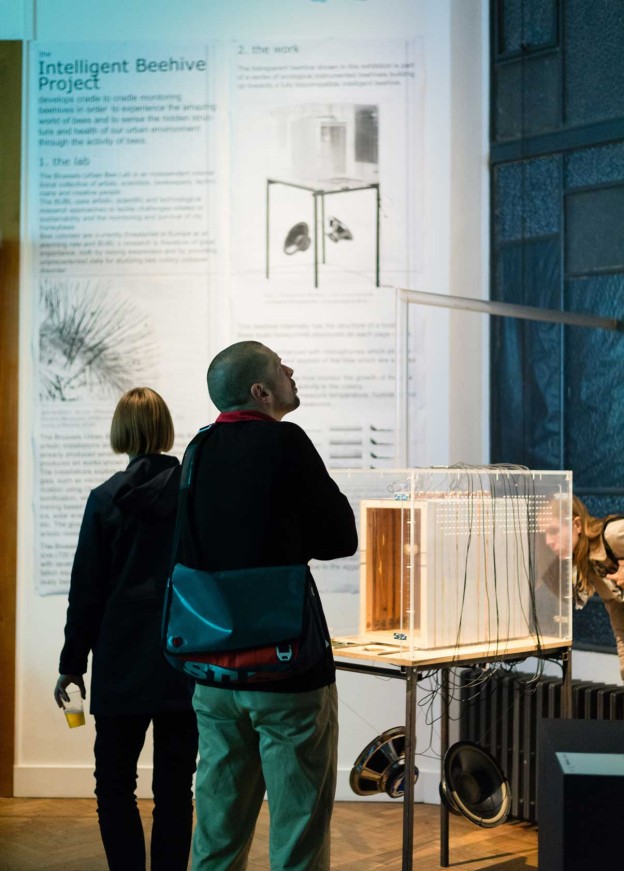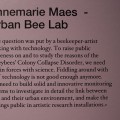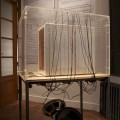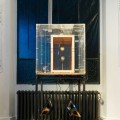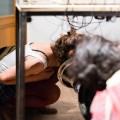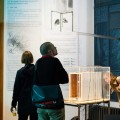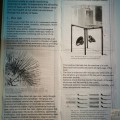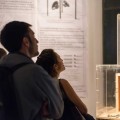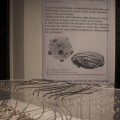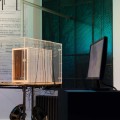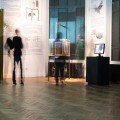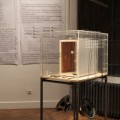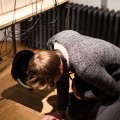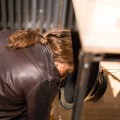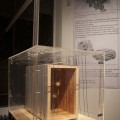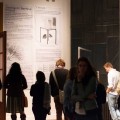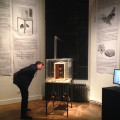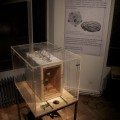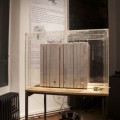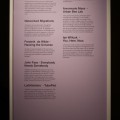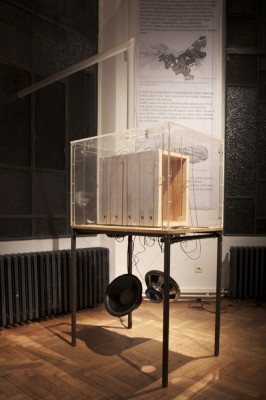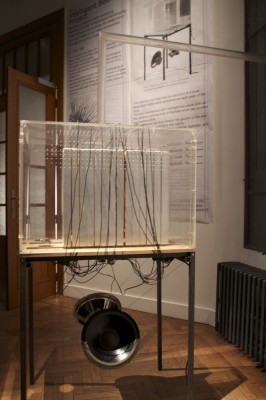What is the outcome if work on novel ict – Information and Communication Technologies – is linked with artistic expression? This is the question asked by the ict art connect.study and the question raised during a series of participations in events of other ongoing activities in the field.
ict art connect.study is ran by iMinds and Artshare for dg connect – European Commission. The study aims at characterizing and connecting artistic communities of ict researchers at all levels. From this analysis, recommendations will be drawn for a dg connect strategy to engage more broadly with the arts in Horizon 2020 – the EU Framework Programme for Research and Innovation.
Stories about ongoing projects will be told, as well as concrete examples will be shown, representing proliferous and fruitful crossings of art with ict. Installations and an informal discussion will manifest contemporary ideas of art, science and technology at beaf (Bozar Electronic Arts Festival).
Bozar Electronic Art’s Symposium: Disruptive Innovation Practices For An Unknown Future
Collaborative initiatives, new practices, permeability between artistic and industrial spheres, and new avenues of financing are all issues that define the new cultural milieu. This symposium proposes to bring together creative experts, policy makers, technologists, artists, companies and researchers from various backgrounds to discuss these issues.
Brussels Urban Bee Lab – AnneMarie Maes et al. at Bozar Electronic Arts Festival
25 september – 5 october 2014
the Intelligent Beehive Project
develops cradle to cradle monitoring beehives in order to experience the amazing world of bees and to sense the hidden structure and health of our urban environment through the activity of bees.
1. the lab
The Brussels Urban Bee Lab is an independent international collective of artists, scientists, beekeepers, technicians and creative people. The BUBL uses artistic, scientific and technological research approaches to tackle challenges related to sustainability and the monitoring and survival of city honeybees. Bee colonies are currently threatened in Europe at an alarming rate and BUBL’s research is therefore of great importance, both by raising awareness and by providing unprecedented data for studying bee colony collapse disorder.
The Brussels Urban Bee Lab operates mainly through artistic installations and workshops. The group has already produced several very original beehives and produced art works shown in international exhibitions. The installations explore highly experimental technologies, such as microbial fuel cells, digital and organic fabrication using Open Structures, biomimicry, spatialised sonification, web-based continuous data streaming, data mining based on Artificial Intelligence, organic electronics, solar energy for powering low-energy computing, etc. The group collaborates with universities and other artistic research centers throughout Europe.
The Brussels Urban Bee Lab has also created an extensive (700 m2) rooftop garden in the centre of Brussels with several experimental live beehives and instrumentation equipment. From this laboratory, data is continuously being broadcast through streaming technology.
2. the work
The transparent beehive shown in this exhibition is part of a series of ecological instrumented beehives building up towards a fully biocompatible intelligent beehive.
This beehive internally has the structure of a book. Bees build honeycomb structures on each page of the book. The hive is enhanced with microphones which pick up the vibrations and sounds of the hive which are sonified and made audible. Cameras inside the hive monitor the growth of the wax structures and the activity in the colony. Additional sensors measure temperature, humidity, and other microclimate measures.
The hive housed a live colony and was shown in situ during the TIK festival of OKNO in 2013 in Brussels. The colony collapsed due to the aggressive invasion of the waxmoth in 2014.
3. the artist
New media artist Annemarie Maes is the founding director of the Brussels Urban Bee Lab. She has for decades been a recognized leader pioneering art-science projects in Belgium, using highly original ways to bring out hidden structures in nature by constructing original technological methods to probe the living world and by translating that in artistic creations through sonification, visualization, sculptures, large-scale long-term installations, and workshops. She thus makes use of technological mediation to search for new forms of communication with the natural world.
In 2007 Annemie Maes co-founded the artist collective OKNO which has been active on the border between new media and ecology. OKNO uses DIY and collective artist practices to find new ways to engage with the urban environment. In 2009 she founded the Brussels Urban Bee Lab as a spin-off from OKNO. It focuses on urban bee colonies as a vehicle for novel artistic practices to raise ecological awareness. Following her personal experiences with urban agriculture and ecological activism, AnneMarie Maes approaches plants as individuals interacting with bees, and the presence of the technology as a social reality.
More information on the BEE-research is available browsing the BEE Notebooks and downloading the Foraging Fields booklet.
keywords: media art, beekeeping, ecology, networks, data-visualisation and sonification, pollen analysis, rooftop gardening, urban agriculture, accidental nature, politics of green spaces.
